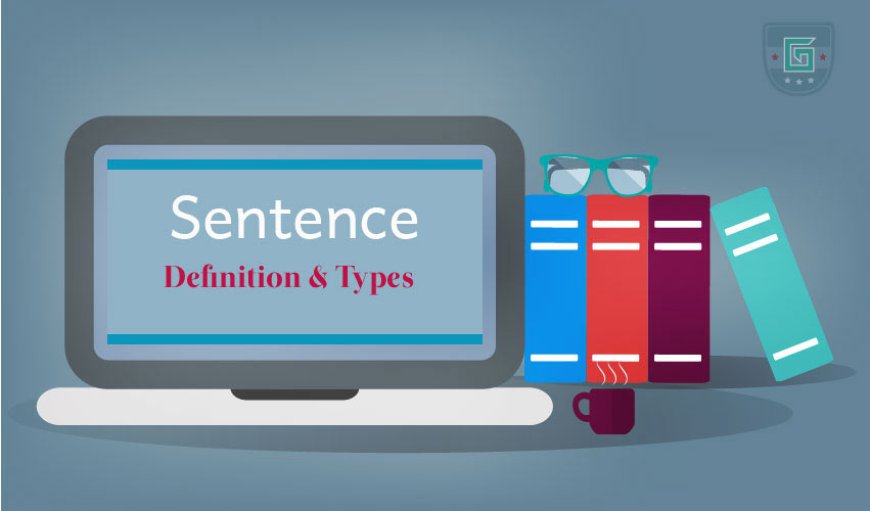Sentences definition and types
A sentence is the basic unit of language which expresses a complete thought. It does this by following the grammatical basic rules of syntax.

A sentence is a group of words that expresses a complete thought, statement, question, or command. It typically includes a subject (the entity performing the action) and a predicate (the action being performed or the state of being), and it begins with a capital letter and ends with a punctuation mark (such as a period, question mark, or exclamation point) to indicate the end of the thought. Sentences can vary in length, complexity, and purpose, and they are the building blocks of written and spoken language.
There are four main types of sentences: declarative, interrogative, imperative, and exclamatory.
- Declarative Sentences: These are sentences that make a statement or declaration.
Example:
- The sun is shining brightly.
- I love listening to music.
- Interrogative Sentences: These are sentences that ask a question.
Example:
- What is your name?
- Have you finished your homework?
- Imperative Sentences: These are sentences that give a command or make a request.
Example:
- Please close the door.
- Stop talking and listen to me.
- Exclamatory Sentences: These are sentences that express strong emotions or feelings.
Example:
- What a beautiful day it is!
- I can't believe we won the game
Structure of sentences
Sentence structure refers to the way words are organized to form a grammatically correct sentence. The basic structure of a sentence consists of a subject, a verb, and an object. However, sentences can be more complex and contain additional elements such as modifiers and complements.
Here is a breakdown of the basic sentence structure:
-
Subject: The subject is the entity performing the action in the sentence. It can be a noun or pronoun. Example: Sarah, the dog, she
-
Verb: The verb is the action being performed by the subject. It can be a physical or mental action, or a state of being. Example: runs, is, thinks
-
Object: The object is the entity affected by the action of the verb. It can be a noun or pronoun. Example: the ball, him, it
Putting these elements together, we can create a basic sentence such as "Sarah runs to the park."
Sentences can also include additional elements such as adjectives, adverbs, prepositions, conjunctions, and interjections, which modify or provide more information about the subject, verb, or object.
Example: "The big, friendly dog chased the small, black cat around the yard quickly and playfully."
In this sentence, "big" and "friendly" are adjectives modifying "dog," "small" and "black" are adjectives modifying "cat," "quickly" and "playfully" are adverbs modifying "chased," and "around" is a preposition indicating location.
What's Your Reaction?






















































